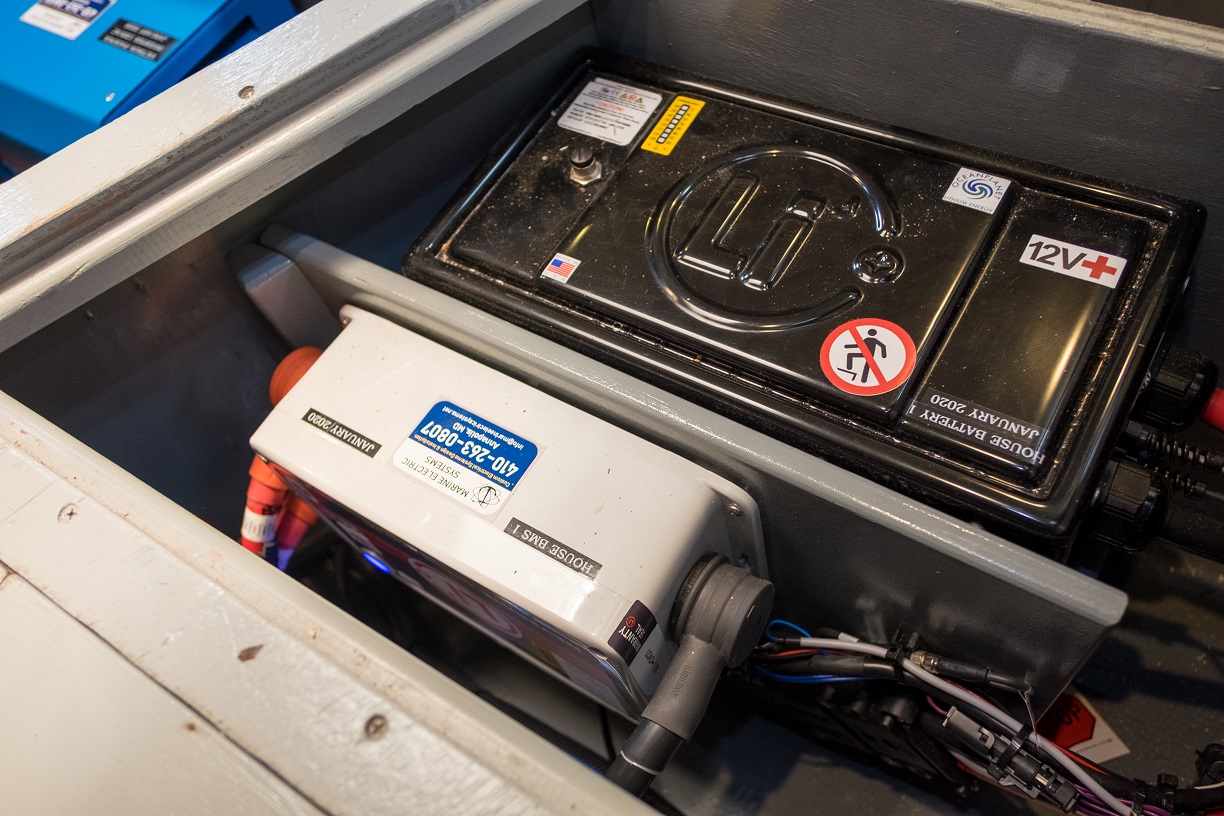
Battery charging is essential, so the marine battery chargers you choose must be suitable for the job.
Nothing ruins your day on the water faster than a dead battery, or worse, a dead battery with no charger. Battery charging is essential, so the marine battery chargers you choose must be suitable for the job, including knowing the difference between a lead-acid battery and a lithium-ion battery. But how do you know which charger is right for your boat? Here are some tips for choosing the proper battery charger for your vessel.
Consider the Battery’s Operating Temperature
Choosing the correct charger includes considering your battery’s operating temperature. The recommended voltages for marine batteries depend on surrounding ambient temperatures. Most boats operate in a range between 50°F and 90°F. Batteries operating in higher temperatures have lower charging voltages, while the reverse is true for batteries operating at lower temperatures.
Ensure the Charger is Compatible with the Battery’s Chemistry
Marine batteries are available in four different chemical types: flooded, gel, AGM, and lithium. When selecting a charger, ensure it’s compatible with your battery’s specific chemistry. Otherwise, it can potentially damage your battery and shorten its life cycle.
Keep in mind that different types of batteries are used for different purposes on a boat. Starting batteries are used to start your engine, while deep cycle batteries power things like trolling motors, lights, and depth finders. It is common for boat owners to use batteries with different chemistries to power other things. In this case, you’ll want a separate charger for each of these batteries or find a single charger compatible with both chemistries.
What Size Charger Do You Need?
The size and type of batteries determine the size of your battery charger and whether your boat has a continuous or intermittent AC power source. Boats that spend most of their time constantly hooked up to shore power require smaller chargers. You need enough capacity to run continuous power to things like DC refrigeration and lights, plus enough energy to float-charge your batteries. A good rule is to have the amperage equal to the sum of the DC loads plus 10 percent of the batteries’ amp-hour capacity.
How Long Does it Take to Charge?
To determine how long it will take to charge your battery, you’ll need to know the amp hour rating of your battery and the charger’s amperage. An amp hour (Ah) measures how much amperage a battery can provide per hour. You can usually find this information on the manufacturer’s website. Similarly, the charger’s amperage can be found in the owner’s manual or on the outside of the charger. You can calculate the charging time by dividing the amp hour rating by the amperage of your charger.
Marine Electric Systems, LLC is a Leader In the Maritime Industry
We here at Marine Electric Systems have over 30 years of industry experience. You can trust our team for reliable service and expert craftsmanship in the Maryland, Baltimore, Annapolis, and Baltimore city areas! We’re highly certified and adhere to all ABYC and NMEA regulations. We specialize in top-notch electrical solutions for recreational, commercial, and government boating clients. Anything from electrical refits, to navigation systems, or boating maintenance. To stay up to date on our services, follow us on Facebook, LinkedIn, Pinterest, Instagram, and YouTube. You can also contact us at 410-263-0807.
